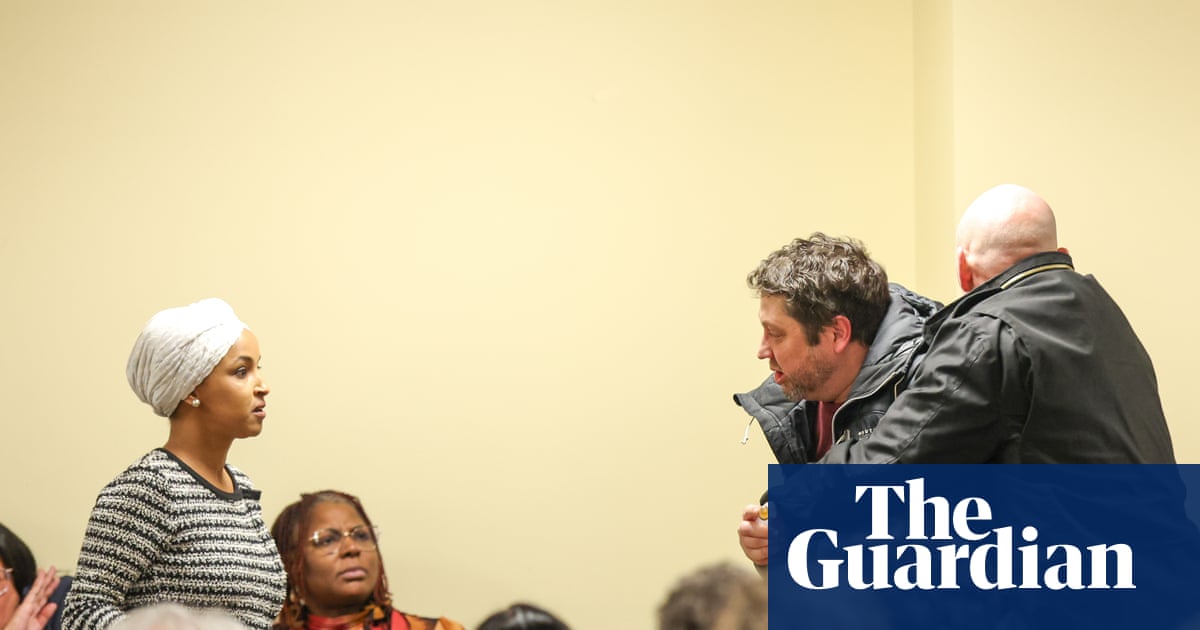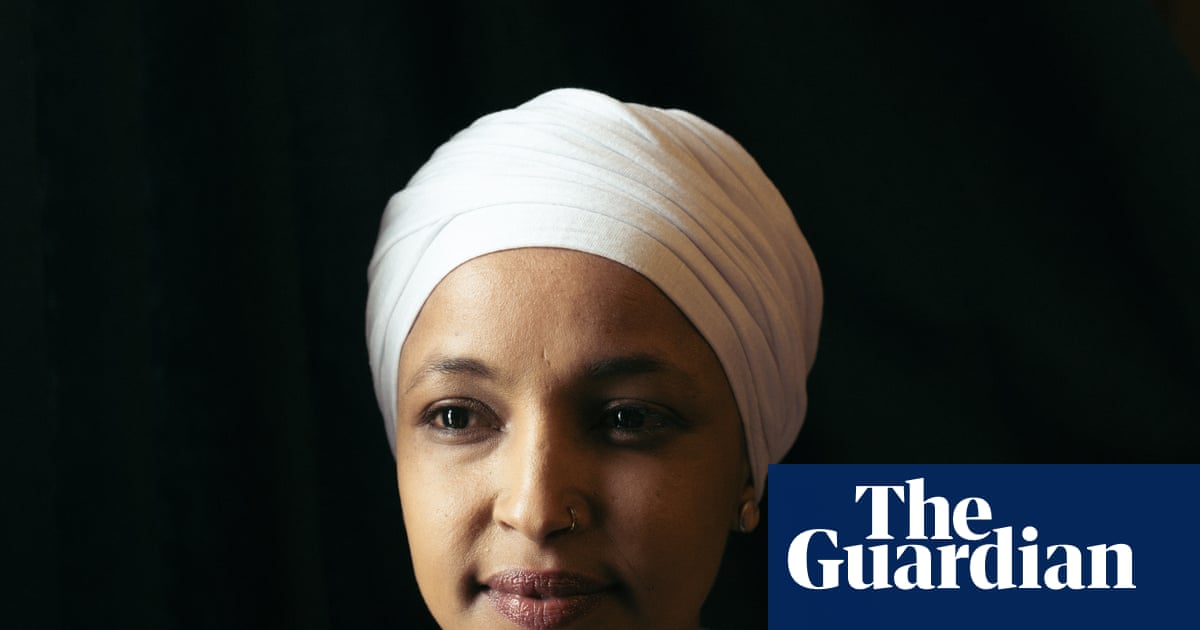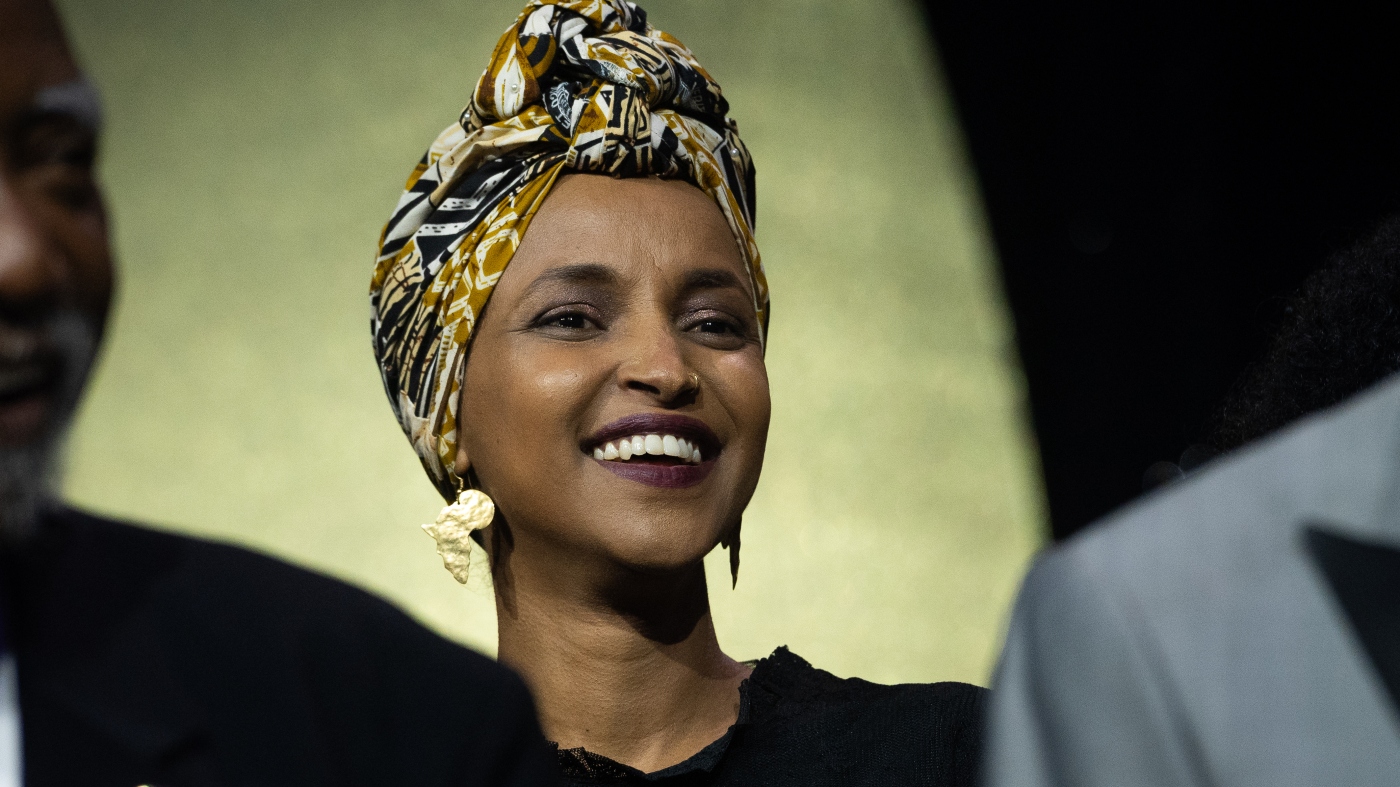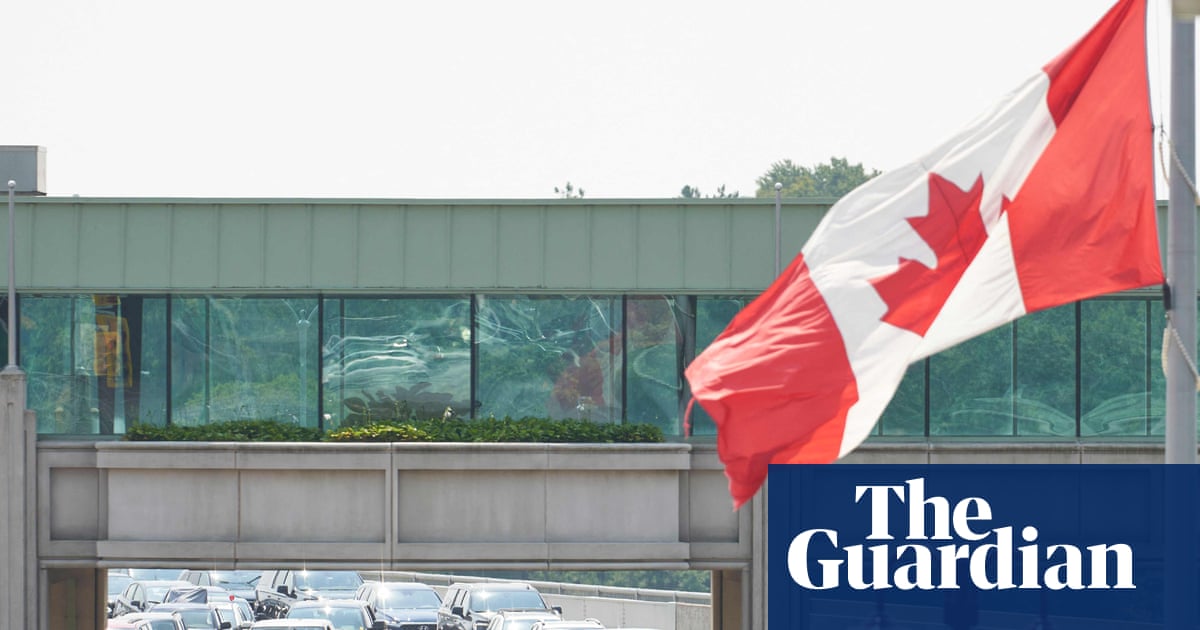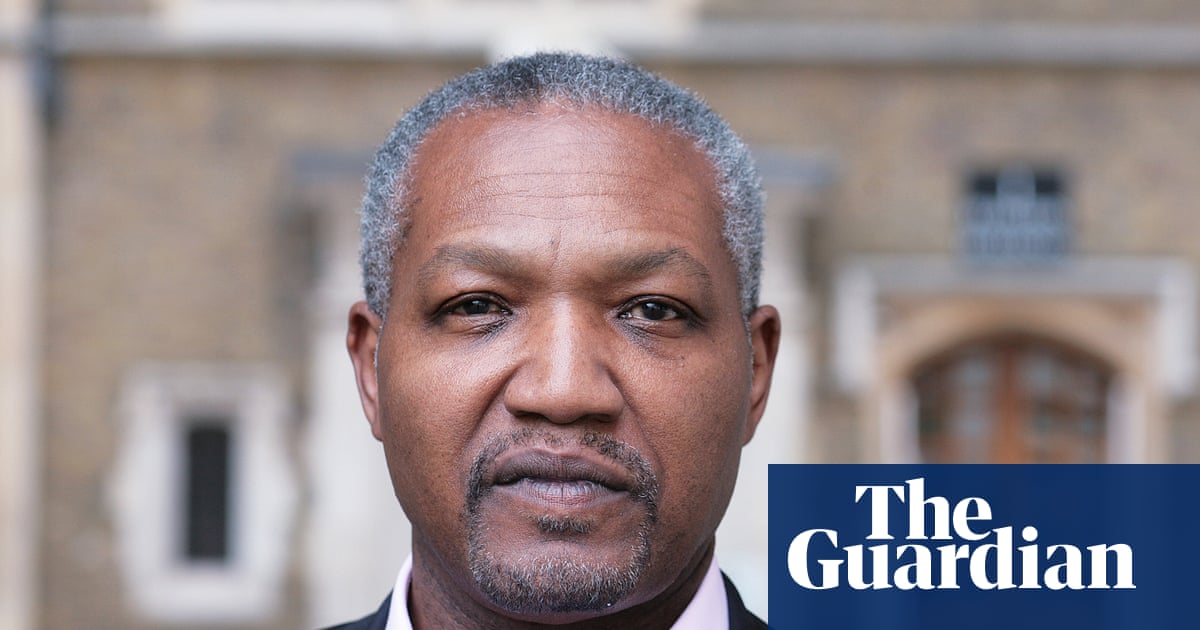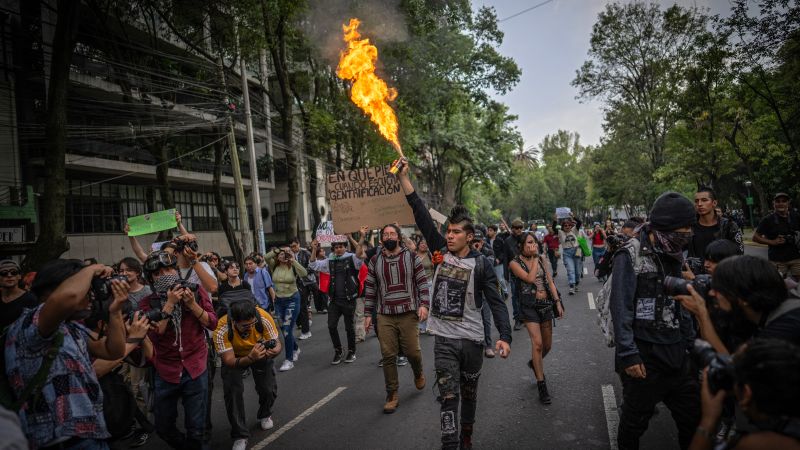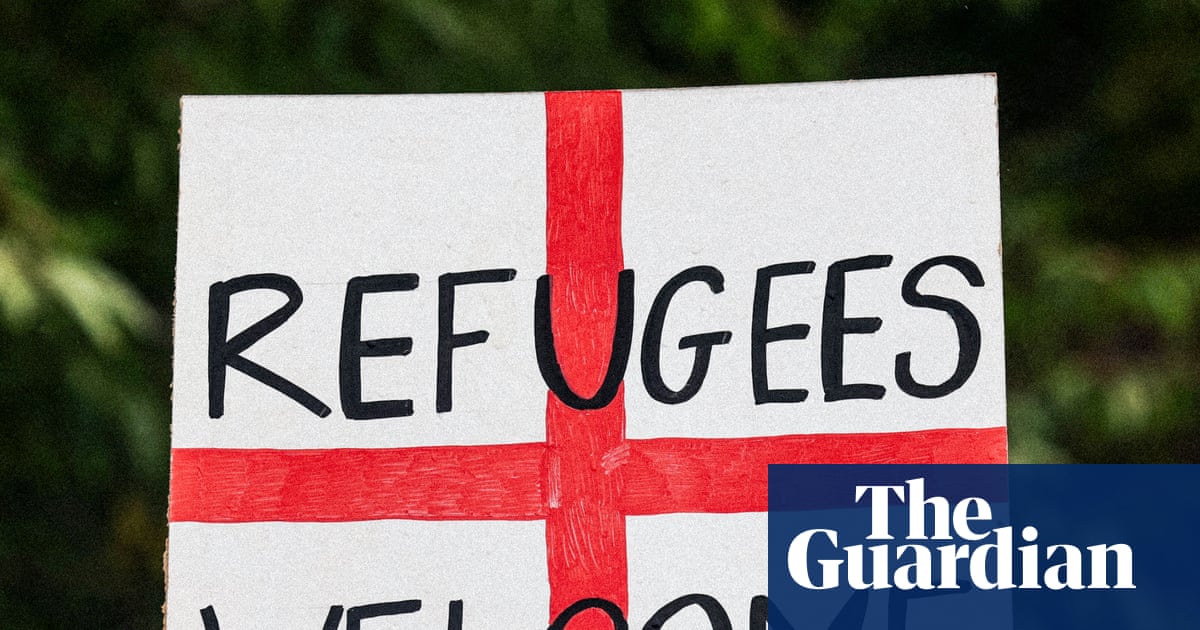#xenophobia
#xenophobia
[ follow ]
#immigration #ilhan-omar #immigration-policy #racism #donald-trump #gentrification #protests #migration
fromwww.theguardian.com
3 weeks agoA moment that changed me: the Brexit result came through and my life in Britain fell apart
In the early hours of Friday 24 June 2016, the result glowed on my phone: 52%. Barely a majority, but nonetheless a verdict. I lay in my rented bedroom in Devon, still in pyjamas, watching everything I'd planned dissolve. When I saw the headline UK votes to leave EU, my first thought wasn't political. It was: What does this mean for me? It was the final day of my second school placement, the culmination of my teacher training for a Postgraduate Certificate in Education (PGCE).
Miscellaneous
fromwww.theguardian.com
1 month agoMigrants are at the heart of our art, our music, our whole history. That's what the right won't admit to you | Rowan Williams
We are repeatedly sold a painfully two-dimensional picture of the motivations of those seeking shelter in Britain. According to this picture, migrants are eager to experience the benefits of our society, but they are also out to undermine it, because they come from cultures whose values are dramatically different from our own. Think of the ongoing grooming gangs scandal: an undeniably appalling series of events, institutional failures and victim-blaming that has been
UK politics
fromPsychology Today
1 month agoThe Psychological Cost of Being Forced to Leave Home
At the core of violence lies emotional rupture, not only when harm is inflicted intentionally, but also when life is interrupted by forces beyond one's control. Forced displacement is one such rupture. It does not simply change location; it reshapes identity, possibility, and the nervous system itself. For those who leave home under threat, hunger, or despair, exile is not a chapter that closes. It becomes a psychological terrain carried within the body and mind.
Mental health
fromwww.theguardian.com
1 month agoTeach your daughter to speak Polish': Ukrainians in Poland face growing resentment
There are about a million Ukrainian refugees in Poland, according to UNHCR statistics from September. Kholkina is not one of them; she is one of nearly half a million Ukrainians in the country who arrived prior to 2022, and has lived in Poland for more than a decade. I'm more Polish than Ukrainian now but I never thought someone would lecture me on how to talk to my own family, she said.
Miscellaneous
fromwww.theguardian.com
1 month agoWant to understand the sickness of Britain today? Look no further a novel explained it all 20 years ago | Aditya Chakrabortty
Richard Pearson is visiting Surrey to close down his late father's home and settle his affairs and, everywhere he looks, the flag of St George is flying from suburban gardens and filling stations and branch post offices. How nice, he thinks, how festive. Soon he learns the truth. So runs the opening not of a recent piece of journalism, but a novel by JG Ballard, Kingdom Come, which despite being almost 20 years old anticipates today's Britain with eerie precision.
UK politics
US politics
fromwww.mediaite.com
1 month agoHe Called Them Garbage!' CNN's Dana Bash Tussles With Trump Border Czar Over Trump's Rhetoric on Somalis
President Donald Trump used xenophobic language targeting Somali immigrants and Rep. Ilhan Omar while immigration officials framed enforcement as public-safety and national-security action.
fromThe Nation
2 months agoAfter the DC National Guard Shooting Comes the Big Lie
Over the holiday weekend in Washington, DC, two members of the West Virginia National Guard, 20-year-old Sarah Beckstrom and 24-year-old Andrew Wolfe, were shot at a short metro ride from my house. Beckstrom died from her injuries and, as of this writing, Wolfe remains in critical condition. The news quickly spread that the shooter was a CIA-trained Afghan man named Rahmanullah Lakanwal, who seems to have been psychologically ravaged by his experience in a death squad underwritten with our tax dollars.
US politics
US politics
fromABC7 San Francisco
2 months agoBay Area Afghans brace for restrictions as Trump calls to halt immigration after DC shooting
Bay Area Afghan community condemns the shooting while warning of demonization, discriminatory immigration suspensions, and fears of collective punishment against Afghan nationals.
US politics
fromwww.mediaite.com
2 months agoSteven Crowder Says Indian Immigrants Are No Threat to American Construction Workers Because They're a Physically Feeble People'
Steven Crowder claimed Indian immigrants are too physically feeble for construction work and repeatedly disparaged Indian people, culture, and immigration through derogatory remarks.
fromPinkNews | Latest lesbian, gay, bi and trans news | LGBTQ+ news
2 months agoDrag Race star's reminder for poppy-wearers on Remembrance Day
It's such an important occasion to mark. I actually umm'd and ahh'd a lot about wearing a poppy today because I find the pageantry that comes along with it sometimes a little bit nauseating. It becomes much more about a political show than it does about remembrance. The remembrance is the key thing, especially in a world where the far right is rising, racism is on the rise, xenophobia... it's really important to remember that that's what we were fighting against in World War II.
UK politics
fromwww.dw.com
3 months agoSouth Africa: 'Operation Dudula' hunts down illegal migrants DW 10/06/2025
The South African populist, nationalist and anti-immigration group "Operation Dudula" is once more making headlines, having recently launched a campaign targeting migrant children. By arguing that there are not enough school placements for South African children, the overtly xenophobic group has called for the exclusion of migrant children from public schools. Operation Dudula is known for its head-turning publicity stunts. Members of the group have, for instance,blocked access to public hospitals for foreignersin the country, saying they should not use facilities funded by taxpayers' money.
Right-wing politics
fromwww.theguardian.com
4 months agoMy kids are too scared to go outside': Kurdish migrants face hostility as Japan wrestles with demographic crisis
I would rather die than go back to Turkey, says Ali*. But life is also getting worse here. I can see that our Japanese neighbours are much cooler towards us these days. Some refuse even to greet us. More than a decade after he arrived in Japan with his wife and their two eldest children, Ali is fighting a battle on two fronts a decision on his application for refugee status, and rising hostility towards his family and other members of the country's Kurdish community.
World news
fromVulture
4 months agoThe Morning Show, You're Killing Me With This Iran Story Line
Sexual abuser and TV host Mitch Kessler (Steve Carell) was constantly scheming to get back on the air before he finally drove off an Italian cliffside. His replacement, Bradley Jackson (Reese Witherspoon), stumbled into the January 6 Capitol Hill insurrection and ran into her brother, then covered up evidence of his involvement. Tech billionaire Paul Marks's (Jon Hamm) spaceship, on which Bradley later travels to space, looks not unlike a dick, and he turns out to be a dick, which is a poetic coincidence.
Television
fromwww.dw.com
4 months agoCrime statistics: How safe is life in Germany? DW 09/16/2025
"The new Germany" is "a shame, a travesty," says Kurt Caz. In a video, the South African-German travel blogger presents Frankfurt's notorious Bahnhofsviertel neighborhood near the city's main train station as the new normal, which has been "completely taken over by crime, illegal migrants and drugs." Drug addicts lie around on the footpath, a suspected dealer threatens him, a woman throws a bottle: the video has more than 6 million views, and many xenophobic comments, on YouTube, and more than 10 million on TikTok.
Germany news
UK politics
fromwww.theguardian.com
5 months agoBrexit didn't solve Britain's woes, but no matter: leaving the ECHR definitely will. Sounds simple, doesn't it? | Polly Toynbee
Nigel Farage's Reform UK exploits immigration rhetoric to boost support, fueling xenophobia, blame for Brexit failures, and calls to quit the ECHR.
fromwww.theguardian.com
5 months agoAttempt to partner African countries with Japanese cities triggers xenophobic backlash
An attempt to promote friendship between Japan and countries in Africa has transformed into a xenophobic row about migration after inaccurate media reports suggested the scheme would lead to a flood of immigrants. The controversy erupted after the Japan International Cooperation Agency, or JICA, said this month it had designated four Japanese cities as Africa hometowns for partner countries in Africa: Mozambique, Nigeria, Ghana and Tanzania.
World news
fromPsychology Today
5 months agoDid COVID-19 Increase Xenophobia and Racism?
Moral Foundations Theory (MFT) proposes that humans have innate capacities to hold certain moral values, which are then either nurtured or stunted by socio-cultural forces. The five morals typically listed are care, fairness, in-group loyalty, respect (for authority), and purity; other versions propose additional values such as liberty (which was primarily devised to distinguish Libertarians). Political conservatives tend to score highly across all five morals, while political liberals tend to score highly only in care and fairness ( Haidt & Nosek, 2009). Parasitic-Stress Theory (PST) proposes that human values were fundamentally shaped, as we evolved, by the interaction of our ancestors with parasites and diseases ( Fincher & Thornhill, 2014).
Public health
fromwww.dw.com
5 months agoCentral Asian migrants face Russia's cold shoulder DW 08/21/2025
For many residents of central Asian countries, Russia remains the only realistic option to earn a living abroad, given a lack of opportunities back home. A shared language, familiar bureaucracy and established migration networks made this a natural transition following the collapse of the Soviet Union. But is Russia still the safe haven for central Asian migrant workers it once was? Increasingly, the answer seems to be no.
World news
fromCageside Press
5 months agoJosh Hokit Wins UFC Contract, Criticizes "Overweight Fat Guys" And Fighters Who Don't Speak English
gave that Russian guy six days notice. Is a Russian better than an American? That's how I look at it. So I'm ready to go five days notice. I'm ready to fight next week.
MMA
fromOregon ArtsWatch * Arts & Culture News
6 months agoJust like home: A 'Merchant of Venice' that feeels like here and now * Oregon ArtsWatch
"In Portland Shakespeare Project's current staging of the play, the words are barely out of Portia's mouth before we hear offstage drunken laughter that emphasizes her xenophobia and provides a potent reminder that Merchant may be called a comedy, but this version is intent on grappling with the prejudices displayed by its characters."
Portland
NYC politics
fromqns.com
8 months agoPaladino stands by Mamdani deportation post as Democrats blast xenophobic' rhetoric QNS
Council Member Vickie Paladino's call for the deportation of Assembly Member Zohran Mamdani has sparked controversy, reflecting tensions around citizenship and political rhetoric.
[ Load more ]
